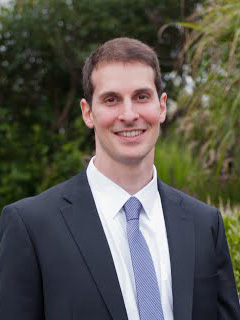Implementing Building Energy Codes: Status of Building Energy Code Development and Implementation Globally and in China, France and the United States
22 January 2015
View Webinar Content
Presentation—Introduction to the webinar and panelists
Presentation—U.S. Energy Codes
Presentation—IPEEC Building Energy Efficiency Taskgroup
Presentation—Building Energy Efficiency Code in China
Transcript—Webinar audio transcript
<!–10:00 a.m. EDT | 4:00 p.m. CET
Check your local time.
–>
The Clean Energy Solutions Center, in partnership with the U.S. Department of Energy, the Pacific Northwest National Laboratory, and the Global Buildings Performance Network, hosted this webinar on the “Status of Building Energy Code Development and Implementation Globally and in China, France and the United States.”
The potential benefits of building energy codes are numerous. With effective codes, buildings can deliver energy services to families and businesses using a fraction of the energy used today. In fact, comfort and productivity could even be improved. Jobs and markets could be created in new industries for energy saving technologies. Pollution in homes and cities and heat-trapping greenhouse gas emissions could be mitigated, protecting human health, well-being, and prosperity. The promise is great, but realizing that promise requires the successful implementation of building energy codes.
This webinar presented the status, the key areas for international collaboration in building energy code implementation and compliance, and the experience of code implementation in China, France and the United States. The presentations were based on outcomes of the Building Energy Efficiency Task Group 3 project conducted for IPEEC and the Major Economies Forum by Pacific Northwest National Laboratory and the Global Buildings Performance Network. The BEET 3 project included data collection on current code status in MEF and G20 countries, identification of candidate areas for collaboration by an expert review panel, and phone discussions and webinars with experts from participating governments.
Presentations were followed by an interactive question and answer session with the audience.
For more information on the BEET 3 project please visit our web portal at www.gbpn.org/beet-3.
Panelists
 Meredydd Evans, Senior Staff Scientist, Pacific Northwest National Laboratory
Meredydd Evans, Senior Staff Scientist, Pacific Northwest National Laboratory
Meredydd Evans is an energy policy and finance expert with over 20 years of international experience. She has worked on energy efficiency and clean energy policies and projects in numerous countries. She is a senior staff scientist at the Pacific Northwest National Laboratory (PNNL), where she manages a program on international sustainable energy, including efforts on building energy efficiency codes and retrofits, energy data for policy and clean energy investments. She began working at PNNL in 1994, and she was seconded to the International Energy Agency in Paris from 2002 to 2006. While at the IEA, she served as Acting Head of the Non-Member Country Division and she wrote two books on energy policy. Both works have been used by national governments in designing policies, laws and regulatory systems. In addition, she has she led assessments of climate-related investments and policies, and she has developed energy efficiency and greenhouse mitigation projects worth over $100 million. Ms. Evans has a B.A. from Columbia University’s Barnard College and an M.A. from Harvard University. She is fluent in five languages and has published numerous books and articles.
 Jonah Steinbuck, Climate and Clean Energy Fellow, Office of International Affairs, U.S. Department of Energy.
Jonah Steinbuck, Climate and Clean Energy Fellow, Office of International Affairs, U.S. Department of Energy.
Jonah Steinbuck is a Climate and Clean Energy Fellow in the Office of International Affairs at the U.S. Department of Energy. His work currently focuses on advancing clean energy and energy efficiency policy through international fora such as the International Partnership for Energy Efficiency Cooperation (IPEEC), the Clean Energy Ministerial, and the G-20. He serves as the U.S. lead for the IPEEC Building Energy Efficiency Task Group (BEET), which facilitates the exchange of best practices in building energy policy. Previously, he served on the staffs of the American Meteorological Society Policy Program, the White House Council on Environmental Quality and the Select Committee on Energy Independence and Global Warming in the U.S. House of Representatives.
 David Cohan, Building Energy Codes Program Manager, U.S. Department of Energy
David Cohan, Building Energy Codes Program Manager, U.S. Department of Energy
David Cohan is the Building Energy Codes Program Manager for the U.S. Department of Energy. He has worked in energy efficiency for over 20 years in a variety of capacities, including evaluation, program design and, for the past ten years, the development and implementation of building energy codes that mandate minimum efficiency levels for all new buildings constructed in the United States. David is particularly focused on ways to increase compliance with the codes so that the potential energy savings are actually realized. David has worked at the Northwest Energy Efficiency Alliance since 2000 and is currently on special assignment to U.S. DOE where he was brought in to reinvigorate their energy codes program. He holds an MS in Energy Management and Policy from the University of Pennsylvania and a BA in Literature from the University of California, San Diego.
 Peter Graham, Executive Director, GBPN
Peter Graham, Executive Director, GBPN
Dr. Peter Graham has been the Technical Advisor and past Coordinator of the United Nations Environment Programme’s (UNEP) Sustainable Buildings and Climate Initiative where he has developed and managed many of UNEP’s key projects and publications in the building sector. He comes to the GBPN from a position as Head of Discipline for Architecture and Design at the University of New South Wales, Sydney, Australia. In these roles, Peter worked closely with the public, civil and private sectors to assist the global transition to a sustainable building and construction industry.
 Chen Peng, Centre for the Science & Technology of Construction
Chen Peng, Centre for the Science & Technology of Construction
Peng graduated from Tsinghua University and began to work in Center of Science and Technology of Construction (CSTC), MOHURD in 2014. He has strong interests in data mining, renewable energy utilization and policy and market mechanisms. He has served as a contact person and researcher for the building energy efficiency project of the U.S.-China Clean Energy Research Center (CERC) since 2014. He participates in the R&D design of CERC2.0 and has very close contact with researchers in the United States and Europe. In 2013, Peng worked in IEA as a loan staff in Paris for three months, and he helped develop a joint paper on building energy use in China between Tsinghua University and IEA, which focuses on the status and future trends of building energy use in China. This report will be on published in 2015. Peng has also participated in research projects for national wide building energy efficiency, and he has developed a roadmap for China building energy conservation based on total amount control as his PhD thesis.
